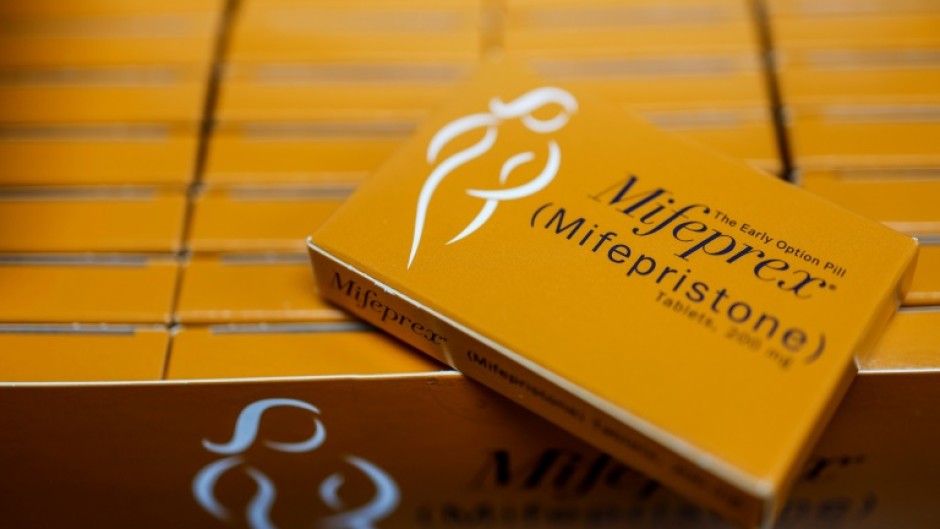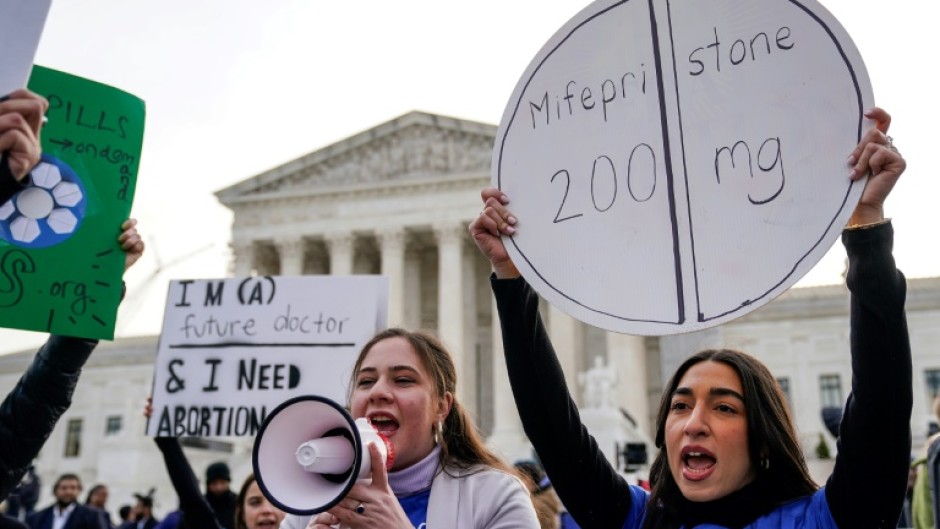The US Supreme Court on Thursday rejected a bid to restrict a pill widely used to terminate pregnancies, but President Joe Biden warned the decision will not defuse a bitter election fight over abortion.
The court, in a unanimous opinion, said the anti-abortion groups and physicians challenging the medication, mifepristone, lacked the legal standing to bring the case.
Abortion rights are one of the key issues in the November election and the Biden administration had urged the court to maintain access to the drug, which was approved by the Food and Drug Administration (FDA) in 2000.
Biden's presumptive White House opponent, Donald Trump, leads a Republican Party broadly favoring restrictions on abortion access.
The president and anti-abortion groups reacted cautiously to the opinion by the conservative-dominated Supreme Court, which left the door open to future challenges to mifepristone in other forums.
"Today's decision does not change the fact that the fight for reproductive freedom continues," Biden said in a statement. "Attacks on medication abortion are part of Republican elected officials' extreme and dangerous agenda to ban abortion nationwide."
Nancy Northup, president of the Center for Reproductive Rights, expressed "relief and anger" at the decision.
"Unfortunately, the attacks on abortion pills will not stop here," Northup said. "In the end, this ruling is not a 'win' for abortion -- it just maintains the status quo, which is a dire public health crisis."
The mifepristone case was the first significant abortion case heard by the Supreme Court since it overturned the previously long-held constitutional right to abortion two years ago.
"We recognize that many citizens, including the plaintiff doctors here, have sincere concerns about and objections to others using mifepristone and obtaining abortions," said Justice Brett Kavanaugh, who wrote the 9-0 opinion.

"But citizens and doctors do not have standing to sue simply because others are allowed to engage in certain activities," Kavanaugh said.
While the plaintiffs lacked standing they "may present their concerns and objections to the president and FDA in the regulatory process or to Congress and the president in the legislative process," he said.
"And they may also express their views about abortion and mifepristone to fellow citizens, including in the political and electoral processes," said Kavanaugh, one of three justices nominated by Trump.
- Roe v. Wade -
Abortion opponents have been seeking to restrict nationwide access to mifepristone, claiming that it is unsafe and that anti-abortion doctors were being forced to violate their conscience by intervening on patients who suffered complications after using it.

A conservative US district court judge in Texas, who was appointed by Trump, issued a ruling last year that would have banned mifepristone.
An appeals court overturned the outright ban because the statute of limitations on challenging the FDA's approval had expired, but restricted access to the drug.
The appeals court reduced the period during which mifepristone can be used from 10 weeks of pregnancy to seven weeks, blocked it from being delivered by mail, and required the pill to be prescribed and administered by a doctor.
The Supreme Court ruling lifts those restrictions.
Medication abortion accounted for 63 percent of the abortions in the country last year, up from 53 percent in 2020, according to the Guttmacher Institute.
Some 20 states have banned or restricted abortion since the Supreme Court in June 2022 overturned the landmark Roe v. Wade ruling that enshrined the constitutional right to abortion for half a century.
Polls show a majority of Americans support continued access to safe abortion, even as conservative groups push to limit the procedure or ban it outright.
By Chris Lefkow


